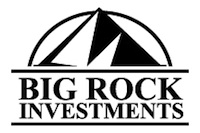Economic times always seem fickle. When the economy is going up, you hear murmurs of the inevitable bubble bursting. When times are down, it’s just a matter of finding those who are profiting and painting a target on their back. Rarely is everything good across the board – or not so good.
As such, the nationwide housing market continues to appear quite robust. Many calling for the inevitable burst are left stating that the time just hasn’t come yet — but it will, they say. However, some markets, like San Francisco, have shown a cooling off period for a bit now, one that may continue for the foreseeable future barring the President’s new economic or tax plan (should one materialize).
So where does Hawaii fit into this? Median single family home prices have yet again eclipsed $750,000 in Honolulu County. The neighbor islands show equally good numbers. Hawaii real estate would appear to remain a good investment.
To that point, new homeowners continue to jump into the fray. It may seem absurdity to some when mid 20-somethings earning modest salaries are buying homes for north of $700,000, but that’s life in Hawaii. It’s all about the scarcity of inventory. Few doubt that those same median prices will soon top $800,000, and current trends point to that being more likely than not.
That means lenders are getting a lot of action. So how best to work with lenders if you’re jumping into the Hawaii market?
If you’re looking to buy a home, it’s not overly complicated: get all your paperwork in order. That means W-2s, tax returns, investment documents, tables of monthly expenses — anything and everything related to your financials. This is about presenting yourself in the best possible light. If possible, get to know your mortgage broker or lender directly on a personal basis. Have them go to bat for you. Most of all, make their life easy! Don’t leave them trying to find you for needed paperwork.
If you’re approaching a hard money lender or private money lender instead, such as what we do for our investment properties, then make sure you have all the property details in order. This includes your After Repair Value (ARV) supported by all necessary comps; at least one or two general contractor repair estimates; a preliminary title report; and a write-up of your own deal history. Provide case studies. Again — make it easy for them to review the deal (and you) and then say yes.
Working with lenders in a hot market like Hawaii is not difficult – it’s about putting yourself in their shoes. Remember — lenders want to lend funds. They know the state of the market, the trends, the impact of scarce inventory, future planned developments, status of the rail project, etc.
It’s your job to make them want to lend funds to you.


Great post Michael! Hope you’re crushing it in Hawaii!